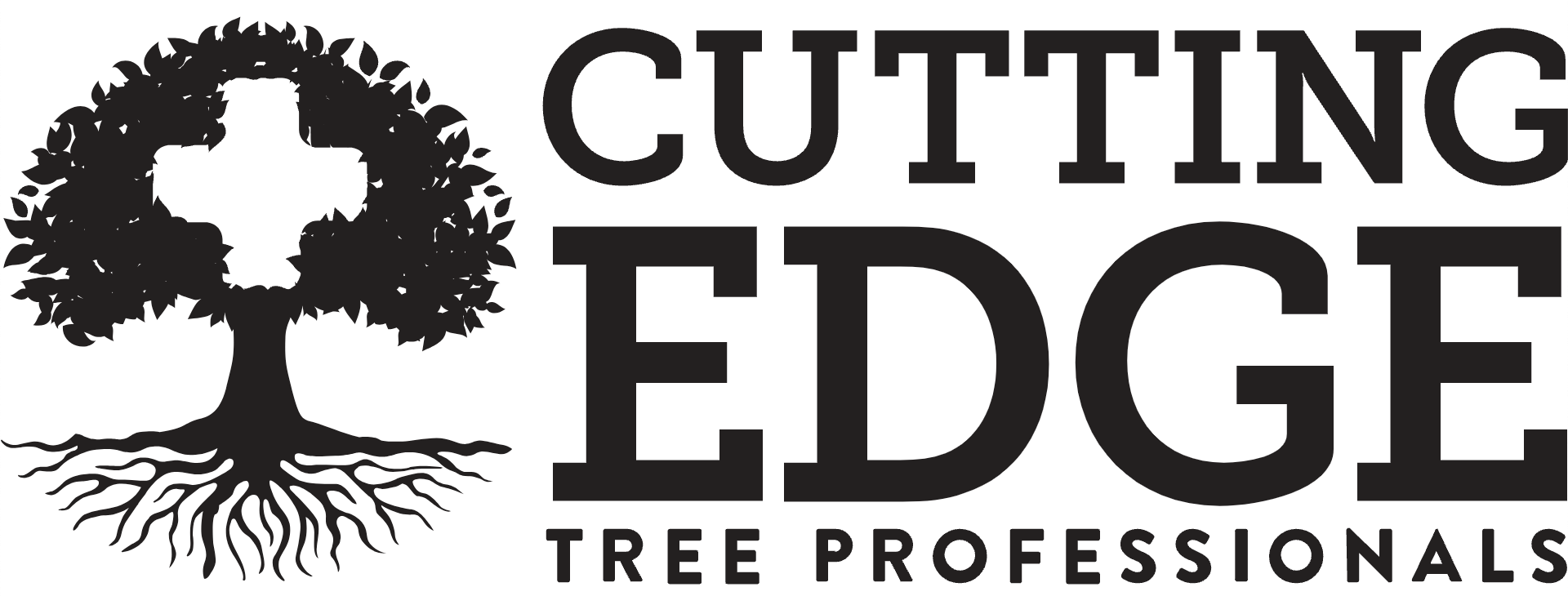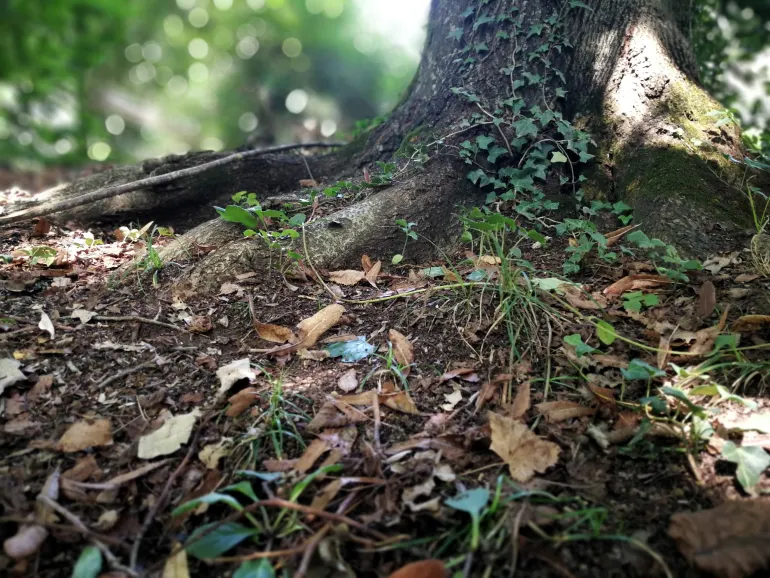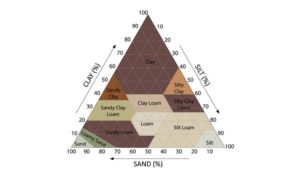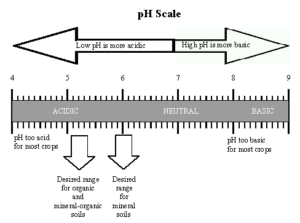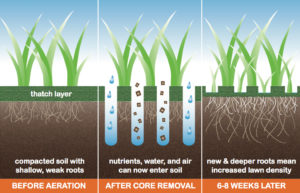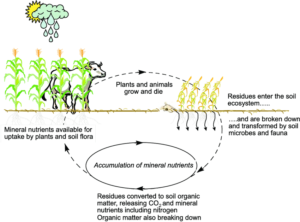Healthy trees begin with healthy soil. As a homeowner in Central Pennsylvania, you may be interested in improving your property’s soil quality and fertility to promote vigorous tree growth. Proper soil management is vital to creating a thriving landscape and ensuring the longevity of your trees. This article will explore key aspects of soil management and the benefits of hiring a certified arborist to consult with and perform soil management services.
How Soil Can Lead to the Success or Downfall of Your Tree Health
When it comes to the health of your trees, the condition of the soil is a critical factor to consider. Although proper soil care has many different benefits, there are 3 main aspects that make healthy soil vital for your trees:
Regulating Water
- When soil is properly managed, it can be a very effective “rain sponge”. This means that when it rains, the soil will absorb and store the rainwater. It then releases it slowly to maintain a healthy amount of moisture on the tree roots. Poorly managed soil will struggle to absorb and store the water, causing over or under release of vital liquid. This can be detrimental to tree health. Especially in the upcoming summer months when your plants are naturally dry and rely on properly stored water.
Filtering Potential Pollutants
- Soil particles are a natural filter. When water runs through soil, the small particles act as barriers to debris and waste. This leaves only clean and filtered liquid to reach your trees. In fact, the pollutants that are filtered by soil can even act as fuel for the natural microbes that exist within the soil, further maintaining its health. If your soil is unhealthy, then it will not be able to filter clean water to your tree’s roots, sending toxic pollutants directly to your plant.
Cycling Nutrients
- Healthy soil is filled with many different nutrients that are absorbed into your trees roots. When trees lose their leaves, or decompose into the soil, they return the nutrients they absorbed back into the dirt. In this way, soil is a very important facor in the cycling of nutrients. If your soil is not properly managed, it will be unable to process the vital nutrients your trees need to stay healthy.
What to Look for in Your Soil
Now that you understand the importance of soil care, lets talk about 4 things you should look for when determining the type of care your soil needs:
Understanding Soil Composition
- Soil is a complex mixture of minerals, organic matter, water, air, and living organisms. The composition of your soil affects its fertility and ability to support healthy tree growth. In Central Pennsylvania, soils generally consist of fertile, well-drained loam. However, soil types can vary, and understanding your specific soil composition is crucial for effective soil management.
Why Soil pH Can Make or Break the Essential Nutrients for Your Tree Health
- Soil pH is a measure of the acidity or alkalinity of your soil. Most trees prefer slightly acidic to neutral soil pH, typically ranging from 6.0 to 7.0. In Central Pennsylvania, soil pH can vary, and it is essential to test your soil to determine its pH level. Soil pH affects nutrient availability, and trees may struggle to obtain essential nutrients in overly acidic or alkaline soils.
Soil Drainage and Aeration
- Proper soil drainage and aeration are critical for healthy tree growth. Excessively wet or compacted soils can lead to poor root development, reduced nutrient uptake, and increased susceptibility to pests and diseases. Regularly monitor your property’s soil drainage and consider implementing measures, such as adding organic matter or installing drainage systems, to improve soil aeration and water movement.
Organic Matter and Soil Fertility
- Organic matter, such as compost or aged manure, can enhance soil fertility and structure. Adding organic matter to your soil can improve water retention, aeration, and nutrient availability, promoting healthy tree growth. Additionally, organic mulch can help retain soil moisture, suppress weeds, and regulate soil temperature.
Hiring a Certified Arborist for Soil Management Services
A certified arborist is a tree care professional with specialized knowledge and training in tree and soil health. Hiring a certified arborist to consult with and perform soil management services can provide numerous benefits, including:
- Soil Testing: An arborist can perform soil tests to determine your soil’s pH, nutrient levels, and other characteristics, providing valuable information to guide soil management practices.
- Personalized Recommendations: Based on soil test results and site conditions, an arborist can provide tailored advice on improving soil quality and fertility to promote healthy tree growth.
- Expertise in Tree Selection and Care: An arborist can help you select the right tree species for your specific soil type and offer guidance on proper planting, pruning, and maintenance techniques.
- Identification and Treatment of Soil-Related Issues: An arborist can identify and address soil-related problems, such as poor drainage, compaction, or nutrient deficiencies, to ensure the long-term health of your trees.
Effective soil management is essential for fostering healthy tree growth on your Central Pennsylvania property. Understanding your soil’s composition, pH, and drainage characteristics can help you take appropriate steps to improve soil quality and fertility. Hiring a certified arborist to consult with and perform soil management services can offer valuable expertise and personalized recommendations to ensure the health and longevity of your trees. For help maintaining your soil and preserving the health of your trees, contact Cutting Edge Tree Professionals (814) 201-9757 or use our online scheduler here for a free consultation.
Additional Sources
https://www.nrcs.usda.gov/conservation-basics/natural-resource-concerns/soils/soil-health
https://content.ces.ncsu.edu/soils-and-water-quality
https://ohioline.osu.edu/factsheet/aex-745#:~:text=Adsorption%20of%20pollutants%20occurs%20due,removed%20in%20the%20same%20way.
